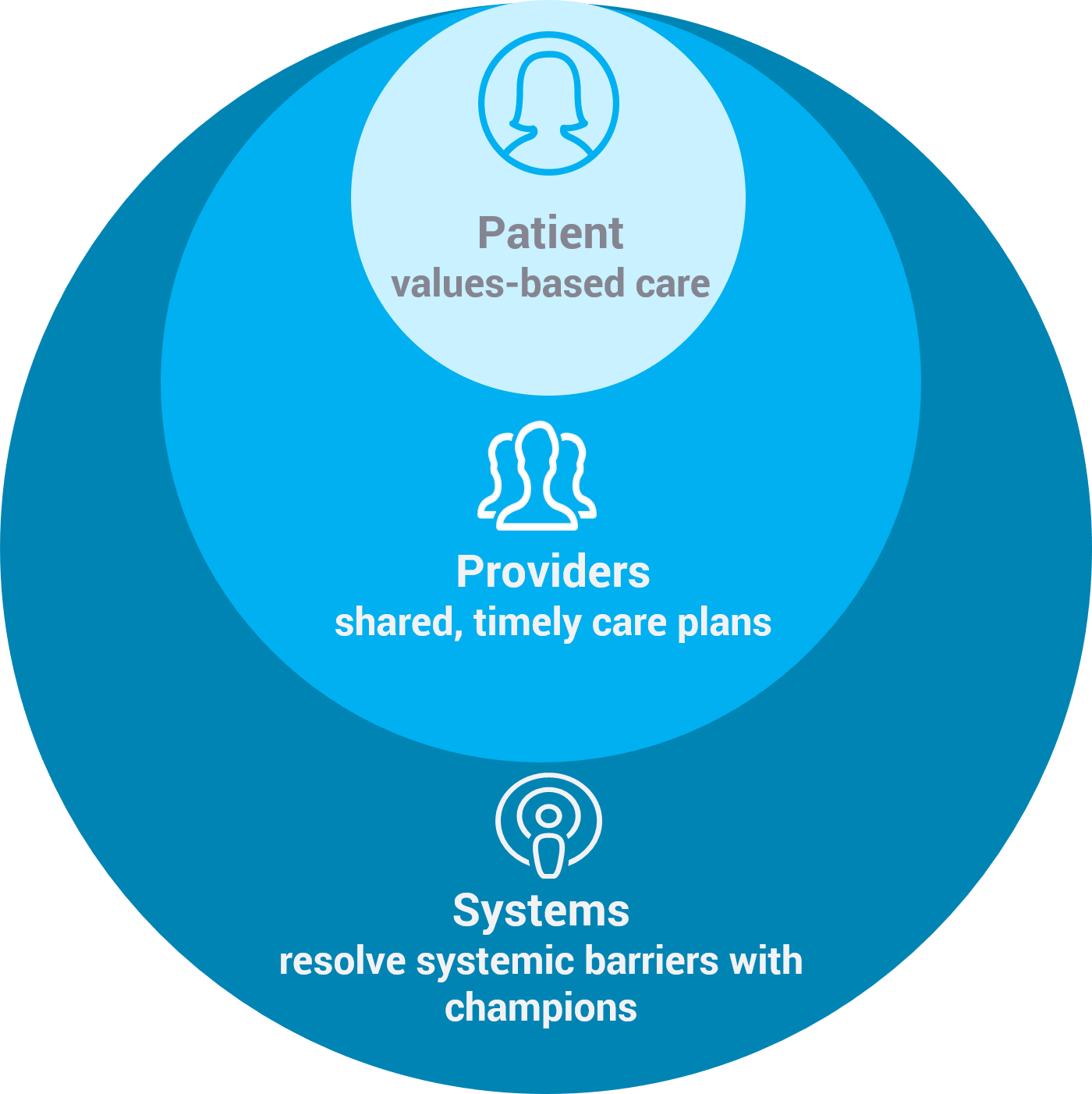Over the last several decades, healthcare improvement efforts have focused on improving health outcomes while reducing healthcare costs. One patient population in particular garners much attention in these efforts: High-Need, High-Cost (HNHC) patients. HNHC patients are often identified by a frequently cited statistic – 5% of the U.S. population who generates 50% of annual healthcare spending.
In addition to frequent encounters with the healthcare system, HNHC patients typically have multiple chronic conditions that limit their ability to perform daily tasks. HNHC are very clinically diverse – not only spanning different diagnoses, but different states of disease severity and stability, presence of different co-morbidities, varying degrees of functional limitations, and unique social needs that impact their health.
While much-needed attention has been focused towards identifying HNHC population needs and targeted evidence-based interventions, less attention has been focused on the experiences of HNHC patients and how those may inform interventions. Here are some key experiences highlighted by our clients.
-
Being chronically ill can be very lonely. Illness prevents us from engaging in work, social events, or hobbies. Daily tasks become taxing. Time spent doing things you enjoy or with people you love is replaced by sick days, doctor appointments, and hospital visits. Your identity is no longer derived from the activities or people you love, but from the list of diagnoses on your discharge paperwork. You are afraid of being a burden to others and may shy away from future interactions.
-
Being ill is painful, both physically and mentally. Many chronic conditions go hand-in-hand with chronic pain: Diabetes and neuropathy; congestive heart failure and chest pain; arthritis and joint pain; depression and a numbing ache that seems to fill every bone and fog your brain. Pain cannot be measured, biopsied, or excised, but it still takes a measurable toll on daily life.
-
Asking for help feels bad. Individuals with chronic illness usually rely on supportive medical or social services. To be chronically ill sometimes feels like you are chronically dependent. You are the recipient, the needy, the less fortunate – never the advocate. Your life becomes an open book for others to write the story.
-
Your body is not your own. Frequently interfacing with the healthcare system can be traumatic. Every time you go to an appointment or ER, your life is distilled to a history and physical. You are examined and palpated; labs are drawn, IVs are placed; imaging is completed. It becomes a ritual. You disassociate from your body. Your body is sick, not you. Your body needs fixing, not you.
What do these insights mean for providers? As providers, how do we empower patients to become the authors of their own stories in addition to improving access to care, quality of care, health outcomes, and cost efficiency?

As we consider how to support our neighbors, we must consider not just evidence-based interventions, but evidence-based interventions that take compassion and client values into consideration as well.
The field of values-based patient care is changing the way care is delivered, by helping providers build care plans that revolve around what’s important to the patient. While our healthcare system overall still has immense opportunities to improve patient experience, the sum of unique, compassionate interactions between patients and providers is slowly moving the needle on what we deserve and expect from the healthcare system.
Check back soon to hear how one patient, after regaining her health (and in many ways her sense of self-agency), became a health ambassador to her community.



